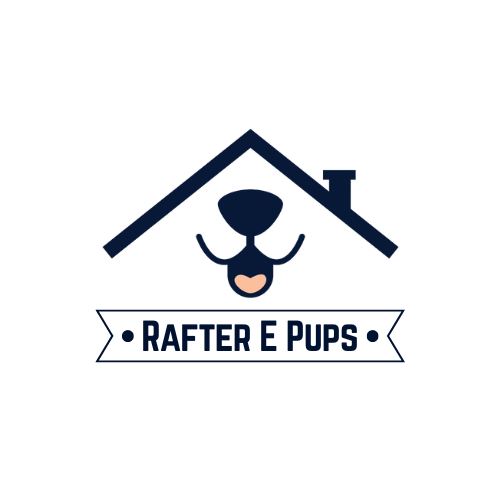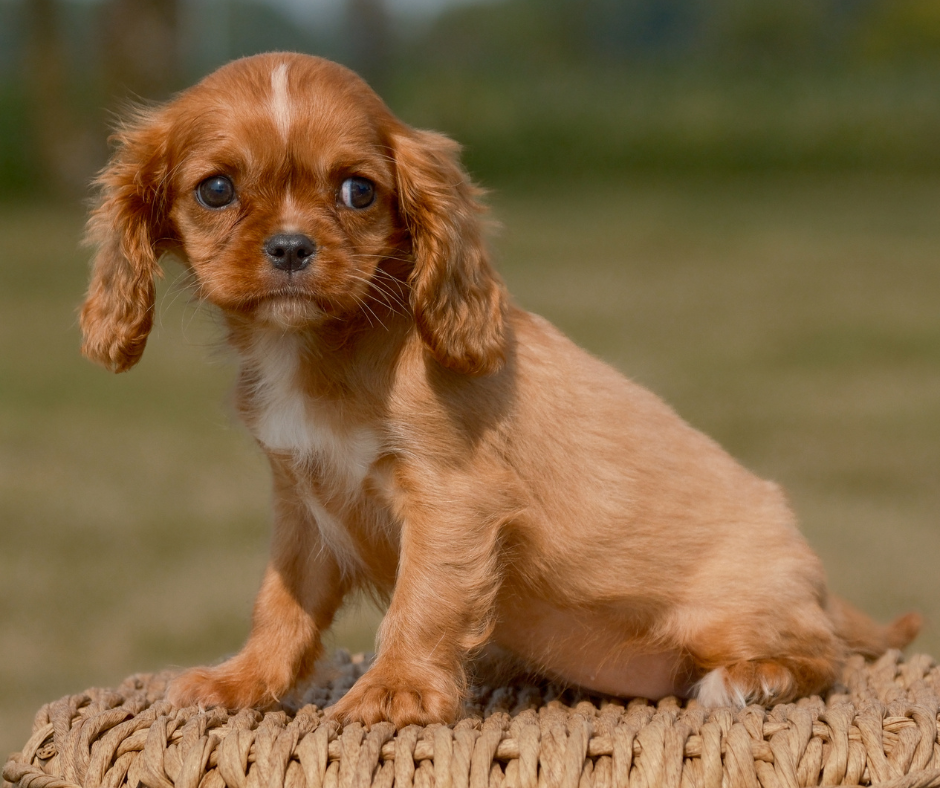Bringing home a Cavalier King Charles Spaniel puppy is an exciting and rewarding experience. These small, affectionate, and friendly dogs make wonderful companions and quickly become beloved family members. Proper care is essential to ensure your Cavalier puppy grows up healthy, happy, and well-adjusted.
To care for your Cavalier puppy, provide high-quality puppy food, regular grooming, daily exercise, and consistent training. Ensure they have safe spaces at home, frequent vet check-ups, and positive socialization experiences. Show love and attention to build a strong bond and a happy, healthy pup.
Understanding the Cavalier Puppy
Cavalier King Charles Spaniels are renowned for their gentle temperament, affectionate nature, and friendly disposition, making them ideal companions for families and individuals alike. These small dogs typically weigh between 13 to 18 pounds and have a lifespan of 12 to 15 years. Their loving and sociable personality ensures they form strong bonds with their owners, and they thrive in environments where they receive plenty of human interaction and attention.
Versatile in their living situation, Cavaliers adapt well to both apartments and larger homes, making them suitable for a variety of living arrangements. Their stunning coat comes in four distinct color patterns: Blenheim (chestnut and white), tricolor (black, white, and tan), ruby (solid red), and black and tan. Each pattern adds to their charm and elegance, reflecting their regal heritage and making them a visually appealing choice for those seeking a beautiful and loving canine companion.
Preparing Your Home for a Cavalier Puppy
Before bringing your Cavalier puppy home, it's essential to prepare your living space to ensure it's safe and comfortable for your new furry friend.
Puppy-Proofing: Remove any hazardous items within your puppy's reach, such as electrical cords, small objects, and toxic plants. Secure cabinets containing cleaning supplies and medications.
Designated Space: Set up a designated area for your puppy to sleep, eat, and play. A cozy bed, food and water bowls, and a few toys will make your puppy feel at home.
Gates and Crates: Consider using baby gates to restrict access to certain areas of your home. A crate can also be a valuable tool for house training and providing a safe space for your puppy to retreat.
Proper Nutrition for Your Cavalier Puppy
Proper nutrition is crucial for the growth and development of your Cavalier puppy. As a breed with a gentle and affectionate nature, Cavaliers require a well-balanced diet to support their health and energy levels. From their first few months of life, the right nutrition lays the foundation for a strong immune system, healthy coat, and overall well-being. Understanding the specific dietary needs of Cavaliers and providing them with high-quality, nutrient-rich food ensures they grow into happy, healthy adults.
Choosing the Right Food: Look for puppy food that lists meat as the first ingredient and contains no artificial additives or fillers. Consult your veterinarian for specific brand recommendations.
Feeding Schedule: Puppies typically need three to four small meals a day. Follow the feeding guidelines on the food packaging and adjust based on your puppy's age, weight, and activity level.
Treats: Use healthy treats for training and rewarding good behavior. Avoid overfeeding treats, as Cavaliers can be prone to obesity.
Hydration: Ensure your puppy always has access to fresh water. Clean the water bowl daily to prevent contamination.
Grooming Yoru Cavalier Puppy
Grooming is an essential part of caring for your Cavalier puppy, ensuring their coat remains healthy and their overall hygiene is maintained. Cavaliers are known for their beautiful, silky fur, which requires regular attention to prevent tangles and mats. Beyond keeping their coat looking its best, grooming also plays a crucial role in their overall health and comfort.
Brushing: Brush your puppy's coat at least three times a week to remove loose hair and prevent tangles. Use a slicker brush or a comb designed for medium-length coats.
Bathing: Bathe your puppy once a month or as needed, using a gentle dog shampoo. Avoid over-bathing, as it can strip the coat of natural oils.
Ears: Cavaliers are prone to ear infections, so check and clean your puppy's ears weekly. Use a veterinarian-recommended ear cleaner and cotton balls.
Teeth: Dental hygiene is essential to prevent periodontal disease. Brush your puppy's teeth daily with a dog-specific toothbrush and toothpaste.
Nails: Trim your puppy's nails every few weeks to prevent overgrowth and discomfort. Use a dog nail clipper and be cautious not to cut too close to the quick.
Exercise and Play
Exercise and play are vital components of a healthy lifestyle for your Cavalier puppy. As an energetic and affectionate breed, Cavaliers thrive on regular physical activity and engaging playtime, which contribute to their physical health, mental stimulation, and emotional well-being. Adequate exercise helps prevent obesity, supports cardiovascular health, and allows your puppy to burn off excess energy, while interactive play fosters a strong bond between you and your furry companion.
Daily Walks: Take your puppy for daily walks to provide physical exercise and mental stimulation. Short walks are ideal for young puppies, gradually increasing the duration as they grow.
Playtime: Engage your puppy in interactive play with toys such as balls, ropes, and puzzle toys. Playtime helps strengthen the bond between you and your puppy and provides an outlet for their energy.
Socialization: Introduce your puppy to various people, animals, and environments to build confidence and reduce the risk of behavioral issues. Puppy socialization classes can be beneficial.
Training Yoru Cavalier Puppy
Training is a fundamental aspect of raising a well-behaved and confident Cavalier puppy. With their intelligent and eager-to-please nature, Cavaliers are highly trainable and respond well to positive reinforcement techniques. Early and consistent training helps establish good behavior patterns, strengthens the bond between you and your puppy, and ensures they grow up to be a well-mannered companion.
House Training: Start house training as soon as you bring your puppy home. Take them outside frequently, especially after meals and naps. Reward them for eliminating outside and be patient and consistent.
Basic Commands: Teach your puppy basic commands such as sit, stay, come, and down. Use positive reinforcement techniques, such as treats and praise, to encourage good behavior.
Crate Training: Crate training can help with house training and provide a safe space for your puppy. Make the crate a positive place with treats, toys, and a comfortable bed.
Leash Training: Get your puppy used to wearing a collar and leash from an early age. Practice walking on a leash in a controlled environment before venturing outside.
Veterinary Care for Your Cavalier Puppy
Veterinary care is crucial for maintaining the health and well-being of your Cavalier puppy. Regular check-ups, vaccinations, and preventive treatments are essential to ensure your puppy grows up healthy and free from common illnesses. Establishing a good relationship with your veterinarian and following their advice helps catch potential health issues early and provides the best care for your furry companion.
Vaccinations: Ensure your puppy receives all necessary vaccinations according to your veterinarian's schedule. Vaccinations protect against diseases such as parvovirus, distemper, and rabies.
Parasite Prevention: Use veterinarian-recommended flea, tick, and heartworm preventatives to protect your puppy from parasites.
Spaying/Neutering: Discuss spaying or neutering your puppy with your veterinarian. These procedures can prevent unwanted litters and reduce the risk of certain health issues.
Routine Check-Ups: Schedule regular veterinary check-ups to monitor your puppy's health and address any concerns. Your vet can provide guidance on nutrition, dental care, and overall well-being.
Mental Stimulation
Mental stimulation is an essential aspect of your Cavalier puppy's overall well-being, contributing significantly to their happiness and cognitive development. As an intelligent and curious breed, Cavaliers thrive on activities that challenge their minds and keep them engaged. Providing mental stimulation not only helps prevent boredom but also reduces the likelihood of behavioral issues and promotes a well-rounded, satisfied puppy.
Puzzle Toys: Use puzzle toys that dispense treats or require problem-solving to keep your puppy engaged.
Training Games: Incorporate training into playtime by teaching new tricks and commands. This keeps your puppy mentally stimulated and reinforces good behavior.
Interactive Play: Spend quality time with your puppy, engaging in activities that require interaction and thinking, such as hide-and-seek or fetch.
Socializing Your Cavalier Puppy
Socializing your Cavalier puppy is a vital step in ensuring they grow up to be a well-adjusted, confident, and friendly adult dog. Proper socialization helps your puppy become accustomed to various people, animals, and environments, reducing the likelihood of fearfulness or behavioral issues later in life. By exposing your Cavalier to different situations in a positive and controlled manner, you help them develop the skills needed to navigate the world with ease and confidence.
Puppy Classes: Enroll your puppy in puppy socialization classes where they can interact with other dogs and people in a controlled environment.
Exposure: Expose your puppy to various sights, sounds, and experiences, such as car rides, different types of flooring, and new environments.
Positive Experiences: Ensure all socialization experiences are positive. Reward your puppy with treats and praise for calm and confident behavior in new situations.
Love and Affection
Cavaliers are known for their loving and affectionate nature. Provide plenty of love and attention to build a strong bond with your puppy.
Cuddling: Spend time cuddling and petting your puppy. Physical affection strengthens your bond and provides comfort to your puppy.
Quality Time: Dedicate time each day to spend with your puppy, whether through play, training, or simply relaxing together.
Understanding Behavior: Learn to understand your puppy's body language and behavior to better meet their needs and address any concerns.
Caring for a Cavalier puppy requires time, patience, and dedication, but the rewards are immeasurable. By providing proper nutrition, grooming, exercise, training, and socialization, you can ensure your Cavalier puppy grows into a healthy, happy, and well-behaved adult dog. The love and affection you give will be returned tenfold, making your Cavalier a cherished member of your family for years to come.

